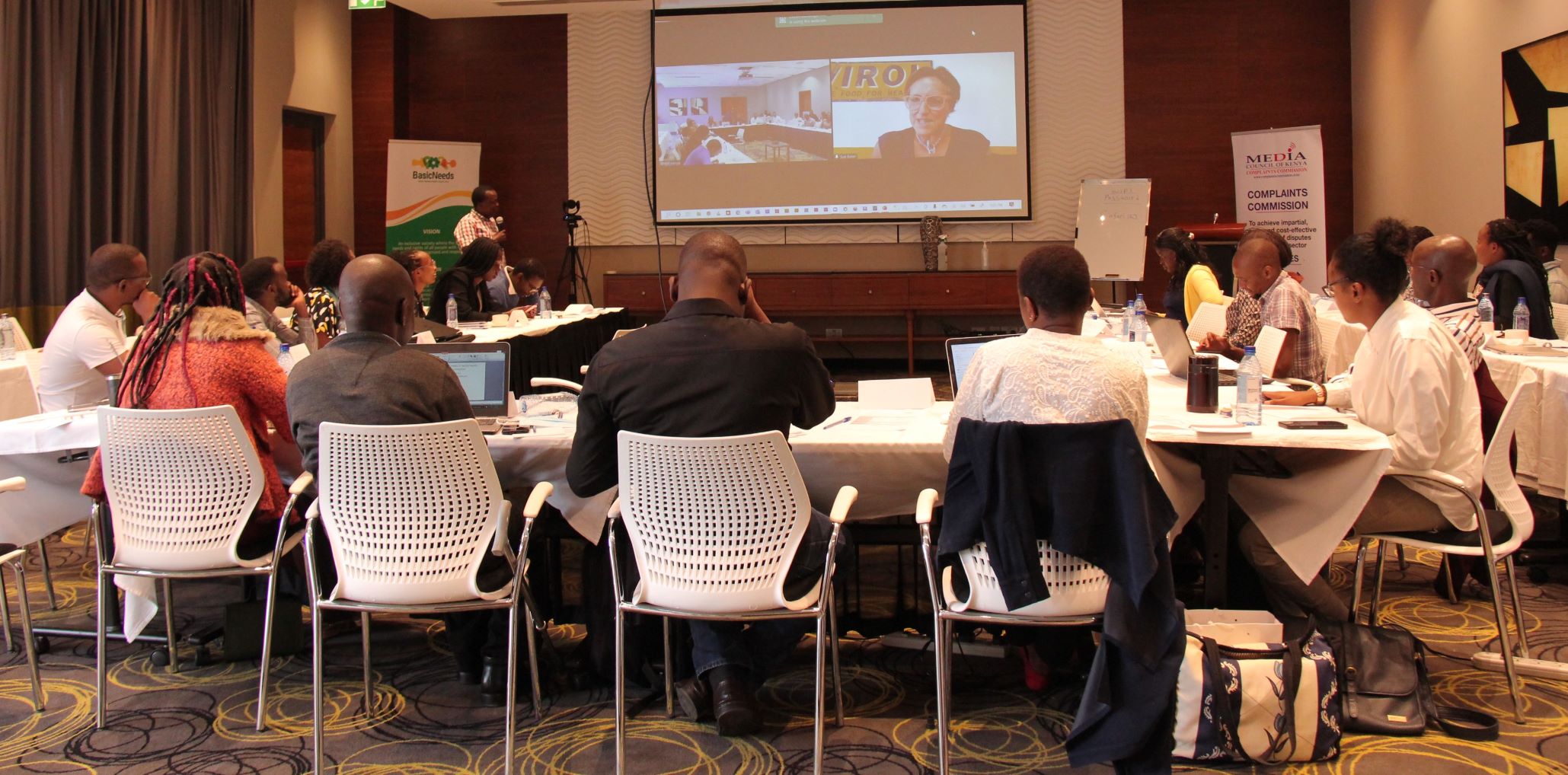
Kenya’s media sector will soon have a curriculum on mental health reporting.
The Media Council of Kenya (MCK) has partnered with Basic Needs Basic Rights Kenya to develop the curriculum. The two organisations entered into a partnership last year to conduct joint training and develop a curriculum and other material on mental health aimed at addressing the rise in mental breakdown among journalists and the wider society.
“We are pleased that this partnership with Basic Needs Basic Rights has given birth to this process of developing a mental health curriculum. We have collaborations with many universities, and you can be sure the document will have many takers”, said MCK Director for Media Training and Development Mr Victor Bwire at the commencement of the exercise early this week.
He noted the curriculum will also find a home in the MCK Africa Media Academy’s eLearning system and urged the consultants to make it short, interesting and relevant.
“Use a lot of local examples to attract buy-in”, he told curriculum specialists at the workshop that also brought together journalists, mental health experts and champions.
“The issue of language is key. While mental health is the global name, we need to fight the stigma around it hence our suggestion: Can we call it mental wellness curriculum?”
He said the Council will be running a grant on mental health reporting in a bid to further raise the status of the subject in a busy news cycle.
“We are excited with our partnership with the Media Council of Kenya and this meeting marks another milestone in our collaboration. I thank our consultants for a very-well executed inception workshop”, Basic Needs Basic Rights Kenya Executive Director Dr Rosemary Gathara said.
“You are setting a global first here in developing a mental health curriculum. What will come out of this will be a benchmark for the region and the world”, said Sue Baker of Mind UK which works with Basic Needs Basic Rights Kenya to support people with mental health disorders to live and work successfully in their communities by facilitating access to mental health care and social support services.
Dr Nasri Omar, a Global Mental Health practitioner at the Ministry of Health lauded the development of the curriculum, noting that it came hot on a suicide prevention strategy which had been developed in partnership with the Media Council of Kenya.
She said there was a lot of Information, Education and Communication (IEC) material on suitable words, images and guidelines at the Ministry of Health which the curriculum developers could benefit from.
“Even as we talk of journalists’ sensitivity it is important to realise that journalists themselves can be candidates of mental health challenges”, said Dr Teresa Okoth, a Masinde Muliro University of Science and Technology lecturer and principal consultant for the project.
“We hope this process will produce a compendium of terminologies to be used on mental health reporting. It should also have a call for action”, said Eunice Omolo, a journalist and mental health champion.
Some of the mental health challenges journalists and other members of the society go through include depression, anxiety disorders, post-traumatic stress disorder as well as bipolar conditions.
“For a long time, I did not feel free to go to the media. But with the discussions marking the development of a mental health curriculum now I feel more comfortable”, said Kate Ann, a journalist and mental health champion.
MCK Assistant Director for Training and Curriculum Development Ms Christine Nguku affirmed the Council’s commitment to mental health issues.
“You already saw our seriousness on this issue with our introduction of mental health category during the last Annual Journalism Excellence Awards (AJEA). In the same vein we reassure you that this curriculum will not just be done and sit there. We shall mobilise until we ensure many journalists take this course so that we may have a better reporting on the subject”, she said.
MCK Senior Officer for Training Standards and Curriculum Development Mr Julius Sigei said the curriculum comes at a time when the society, including the media, was grappling with mental health challenges brought about by the impact of the COVID-19 pandemic and rising apprehension.